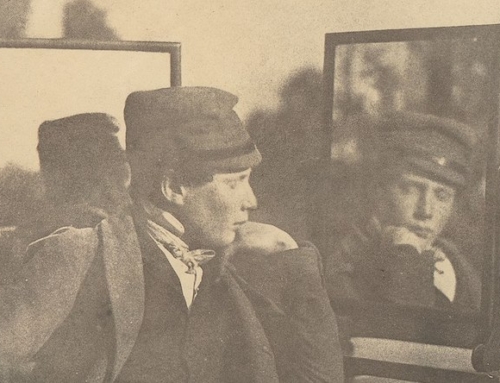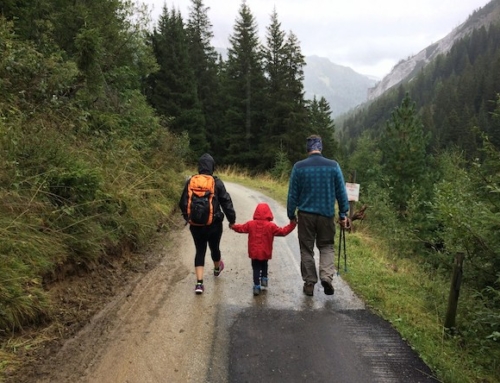Lectio Divina: A Meditation on the Gospel for Sunday
With the Gospel reading from the upcoming Sunday Mass as its principal source-text, each Lectio Divina (“Sacred Reading”) essay offers a prayerful meditation of the Sacred Scriptures—one which draws from the wealth of biblical literature, as well as the prayer life of the individual author.
A home is more than a roof on four walls. We humans have to mark out our personal lives from the public square, separating family and friends from the general crowd. An ideal home offers a secure, comfortable place to doff the many impersonal masks (literal or spiritual) we use to shield ourselves from an equally impersonal world.
When he preached, Jesus did not have a home: “the Son of Man has nowhere to rest his head” (Luke 9:58). Still, in this Sunday’s gospel, he too leaves the publicity of the Capernaum synagogue to retreat to a private household. There the brothers Andrew and Simon Peter look forward to a singular privilege: physically hosting the Lord as he enters under their roof (see Matt 8:8).
But death threatens to disrupt the rest Jesus and the brothers would expect to enjoy. Arriving at the home, they discover that “Simon’s mother-in-law lay sick with a fever” (Mark 1:30), and this fever is “severe” or “great” (Luke 4:38).
In an early act of faith, they “immediately” turn to Jesus and obtain the gospel’s first healing. He raises the woman (Mark 1:30-31), verbally prefiguring when he himself will rise (Mark 16:6), triumphant over death (Healy, The Gospel of Mark, 49). Through this hidden and personal miracle, Jesus restores Simon’s home and simultaneously reveals the saving truth of who he is.
But the peace of the moment cannot last. At dusk, “the whole town” mobs the doorway, begging for the healing and exorcism of their own loved ones. Jesus complies (Mark 1:32-34). Then, when he rises the next day “very early before dawn” to retreat to the privacy of silent prayer with the Father, Simon and the others hunt him down and interrupt him: “Everyone is looking for you” (Mark 1:35-37). And yet, even though the grateful crowd wants to prevent him (Luke 4:42), Jesus must press on: “Let us go to the nearby villages that I may preach there also. For this purpose have I come” (Mark 1:38).
During his earthly life, our Savior had a universal mission and therefore could not live as a local celebrity. The scene shifts, first from one house (Mark 1:29) to “the whole town” (1:33) and then to “the nearby villages” and “the whole of Galilee” (1:38-39). As we know, the Christ ultimately must turn south to be rejected and die in Jerusalem, thus winning the redemption we now preach to “the whole world” (Mark 16:15).
Simon and Andrew’s closeness to the Lord made it possible for them to enjoy this hidden miracle in the quiet of their home. But, as his disciples, they cannot simply abandon themselves to this rest. Instead, they “have given up everything” to become “fishers of men” (Mark 10:28; 1:17). They participate in Christ’s homelessness for the sake of the gospel. Ultimately, they depart to foreign lands and bear public witness to Jesus by their martyrdoms.
Charity and the Christian faith certainly begin “at home” and take root in the privacy of the human heart. Nevertheless, we cannot be imitators of Christ if we hide our faith away with our personal affairs. Whatever the cost, the public demands of charity urge us to announce this good news to all the world: Lord, everyone is looking for you.
✠
Photo by Fr. Lawrence Lew, O.P. (used with permission)







